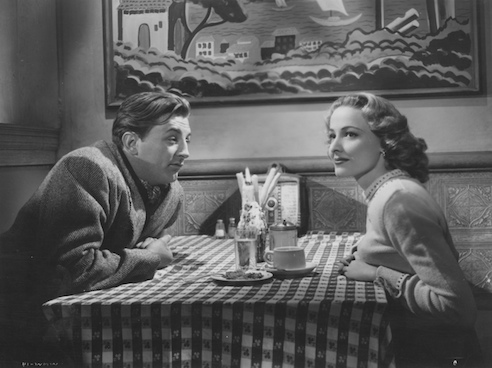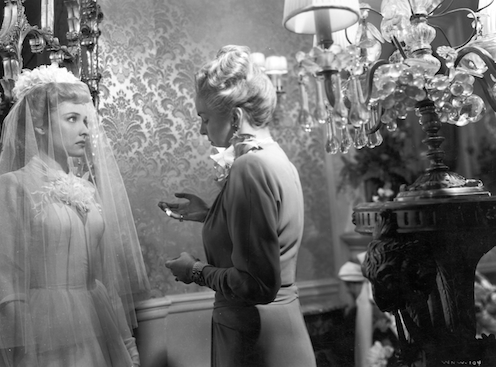The Locket
Full Description
Initially scripted by Norma Barzman*, who was followed by the better-known Sheridan Gibney and denied credit, The Locket is a compelling noir treating a female protagonist with empathy and understanding. Laraine Day plays a bride facing a crisis hours before her wedding: a former husband suddenly appears and reveals that she has a history of kleptomania. The return of a locket prompts a mental breakdown and her institutionalization.
Over the course of the film, an extended flashback offers a stunningly complex psychological portrait. The "RKO Style" of socially based films with imperfect characters and very real sources of oppression is at its best here, because criminal behavior has a real-life explanation and, presumably, a cure as well.
Unlike Alfred Hitchcock’s treatment of another troubled woman in Marnie, there is little affectation or suggestion of sexual failure here. Locket director John Brahm was both workmanlike and budget limited. But Freudianism was also more likely to be viewed in Hollywood of the 1940s through an understanding of material conditions. Had Barzman worked on the script to completion, it would surely have attained something closer to the synthesis of Marx and Freud that Hollywood’s future blacklistees mulled during the second half of the decade.
We are left, at any rate, with a neglected gem of a film, a marker of what the "woman’s film" might have become nearly a quarter-century before feminism had its delayed and always limited impact on Hollywood. That Barzman was denied credit only compounds our need to recover and reinterpret The Locket.
-Paul Buhle
*Blacklist victim
Director(s)
Country(ies)
Language(s)
Release Year
Festival Year(s)
Running Time
85


